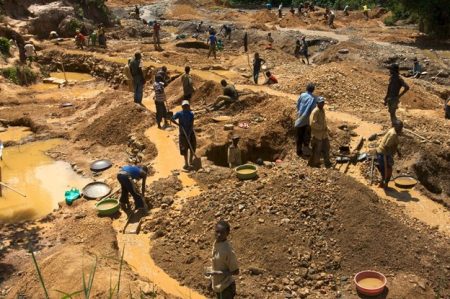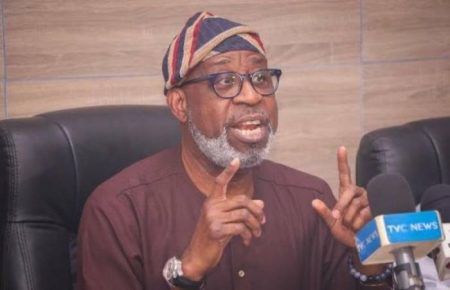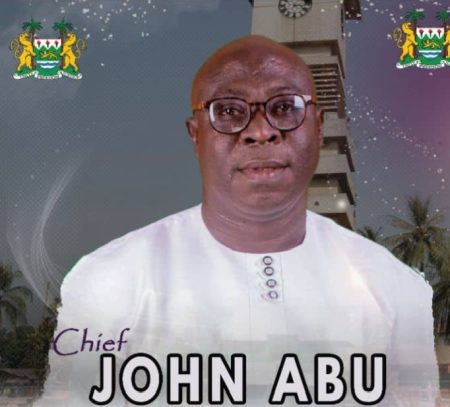 13 May 2013, Sweetcrude/African Press Organization, APO, Cape-Town, South-Africa — Key players in the mining sector attending an industry partnership meeting for Mining and Metals session organized by the World Economic Forum and the Economic Commission for Africa, ECA, have underscored that the window of opportunity provided by rising commodity prices must correspond to a rise in revenues for African governments by equal measure. Held on 8 May, the session was aimed at examining how the Africa Mining Vision and its goal of facilitating transparent, equitable and optimal exploitation of mineral resources to underpin broad-based sustainable growth and socio-economic developmentcan be translated into national mining visions, developed from a fully transparent and inclusive process.
13 May 2013, Sweetcrude/African Press Organization, APO, Cape-Town, South-Africa — Key players in the mining sector attending an industry partnership meeting for Mining and Metals session organized by the World Economic Forum and the Economic Commission for Africa, ECA, have underscored that the window of opportunity provided by rising commodity prices must correspond to a rise in revenues for African governments by equal measure. Held on 8 May, the session was aimed at examining how the Africa Mining Vision and its goal of facilitating transparent, equitable and optimal exploitation of mineral resources to underpin broad-based sustainable growth and socio-economic developmentcan be translated into national mining visions, developed from a fully transparent and inclusive process.
While the index price of precious metals and base mineralshas increased by over 200% in the last decade, industry leaders and policy makers here agree that the current contribution of minerals to Africa’s economic development is not commensurate.
Stressing the need forbeneficiation andvalue addition and linkages in the mineral value chain, ECA’s Executive Secretary, Carlos Lopes says, “minerals have to contribute to structural transformation – we have to see a strongermanufacturing sector in Africa going forward.”
According to industry experts, Canada, Australia and Chile have used the minerals sector for industrial transformation and the composition of their GDP has seen a growth in the contribution of manufacturing.
“Commodities have not been a curse but rather a blessing for these countries – the diversified and rich mineral resource base can do the same for Africa,” notes Lopes.
A continental approach that steers the course of Africa’s minerals towards a path that derives development benefits is already in place. “The tripartite partnership of the African Union, African Development Bank, and the ECA is establishing the African Minerals Development Centre (AMDC) to help AU member states achieve broad-based social and economic development based on Africa’s mineral endowment as stipulated in the Africa Mining Vision,” say Senior officials at the ECA.
The Centre aims to create the institutional and policy space for broad social and economic linkages and thusfacilitate a mineral-led industrialization process.
As underscored by participants here,the risks are changing in Africa due to increased macroeconomic and political stability in most countries and this offers opportunities for investing in the continent’s highly prospective geology. However, countries need to improvegovernance and capacity to negotiate contracts and to audit the mineral value chain.There is a need for amore sophisticated regulatory environment, clarity of policy, as well as consistency and transparency in the overall policy framework.
There is also concerted agreement among stakeholders on the need to domesticate the Africa Mining Vision. “It is the only way country-specific issues, such as inclusiveness and linking mining to the rest of the economy can be captured and addressed,” stress the experts. In this regard, piloting of the country Mining Visions in a few countries will provide important lessons for the rest of the continent in the rollout of the development of AMV-compliant policies.
Participants discussed the mineral value management tooldeveloped by the World Economic Forum, which could be utilizedin the process of developing country mining visions, as it facilitates the capturingand alignment of the often divergent views of all stakeholders on the value of the minerals sector.The toolcouldhelpto align the value perceptions of communities, the private sector and governments.
In addition, there is room to address capacity gaps at country-level, and within governments, according to experts. “Instead of having agreements on a project by project basis, in one country, a generalized template that specifies all the key parameters can be developed and then customized,” they stress.
“Mining development agreements can become a law in themselves and governments often lack capacity to monitor implementation of these complex agreements,” argue the experts, who stress that a robust legal and regulatory framework ormodel mining policy or agreement will suffice. The call here this week to governments is “legislate, do not negotiate.”



